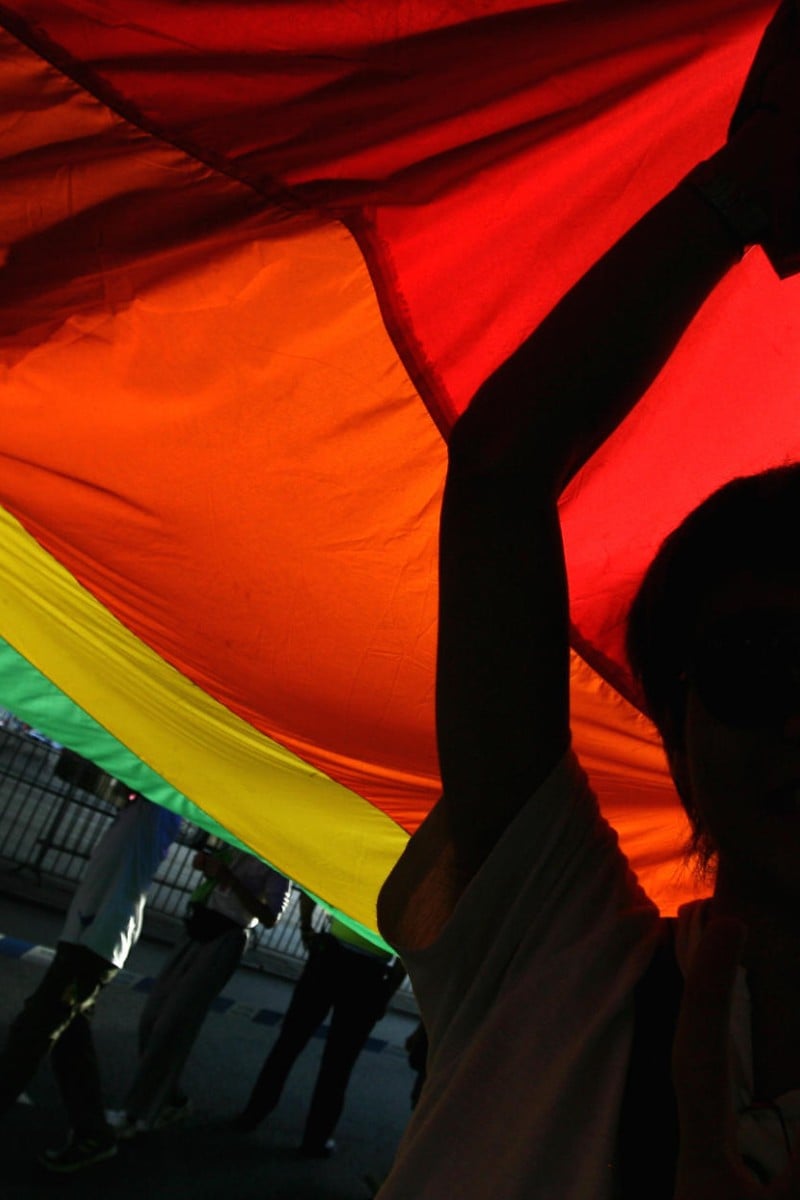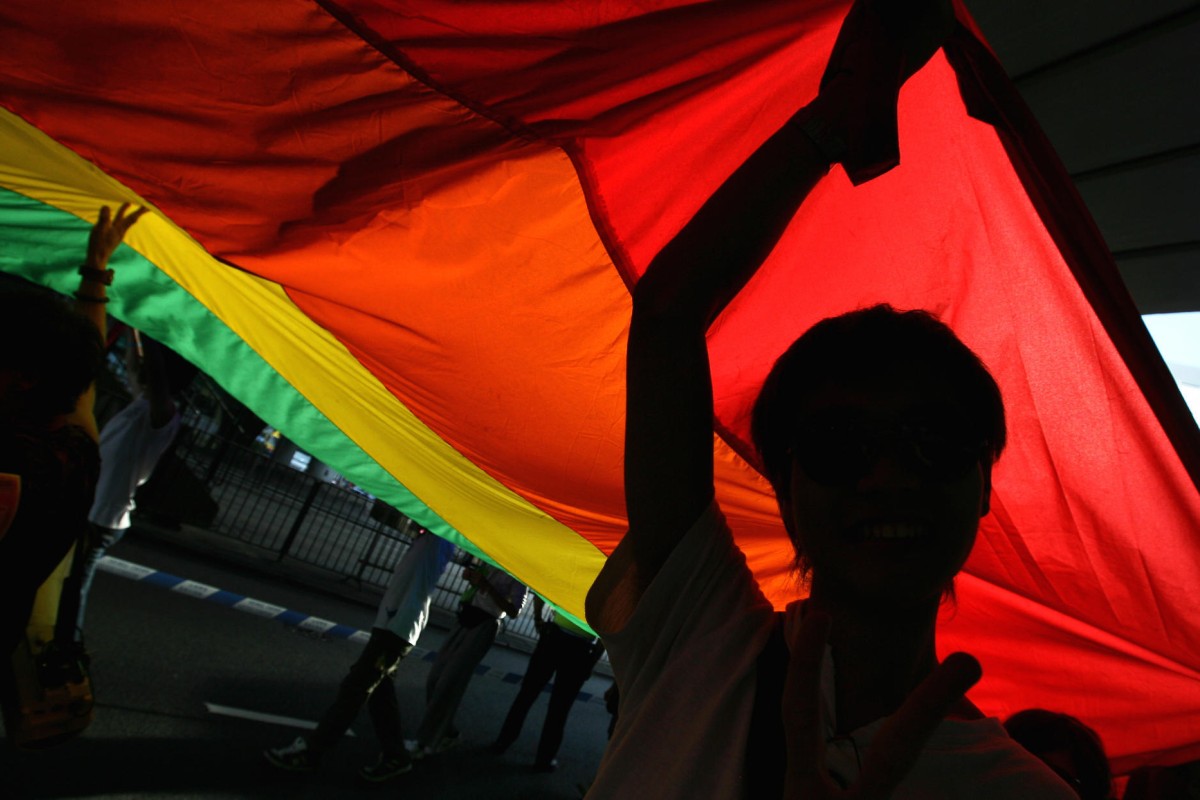
With the issue taking a back seat in local schools, Hong Kong's LGBT students feel confused and have no one to talk to about their feelings

News
A number of Hong Kong schools lack a support system for their LGBT community. Hong Kong has yet to legalise gay marriage, and its laws do not provide protection and rights similar to those in Western countries. For example, Ireland recently legalised same-sex marriage through popular vote.
This is connected to the region's public perception of the LGBT community, which spills into schools' stances and actions. Hence, it is not common for schools to actively discuss the topic and offer assistance to both LGBT students and teachers.
An absence of education could also lead to on-campus bullying and verbal/emotional abuse.
Teenagers are under so much pressure already, and they may find dealing with sexuality a heavy burden, especially without external support.
Different schools offer varying degrees of support. Many international schools and some local schools encourage greater awareness and offer more support with regard to LGBT through counselling and student groups. However, sex education often stops at heterosexual interaction. Furthermore, one international school recently faced controversy with their ban on hiring gay/transgender teachers.
With local schools, there is even less support, generally. For example, Michael Morrill, a teacher who won the Mr Gay Hong Kong title in 2013, is HIV-positive. He experienced severe discrimination in his school, so he decided to leave the city.
Issues
Lack of sex education
Research conducted by Bain & Company reveals that more than 40 per cent of local schools in Hong Kong fail to provide sex education from a qualified outsider, while the in-house provision tends to be inadequate.
Moreover, the lessons only deal with heterosexual relationships, whether in an international or local school. This overlooks the LGBT presence and means people are unaware of related issues. For example, in a Community Business survey of 1,002 working individuals, 77 per cent did not know the definition of "transgender".
With a lack of education and visibility, LGBT students can feel confused about their identity. To make matters worse, their school mates could make fun of them.
Consequently, adolescents who have had no LGBT education may suffer from guilt and shame. Their peers may also fail to understand or accept their situation, resulting in discrimination and alienation.
As a result, LGBT youths report higher rates of depression, suicidal tendencies, and anxiety and other mental issues.
The School of Medicine of the University of Pittsburgh, in the US, conducted a review of sexual minority youths, reporting that 28 per cent of surveyed gay teens were suicidal, compared to 12 per cent of heterosexual teens.
A lack of education also leaves gaps in knowledge, leading to risky sex behaviour and/or unsafe relationships. With no pregnancy risk, many fail to realise the importance of protection from sexually transmitted diseases. "An increase of HIV infection among [the male homosexual community] is very worrying," said Dr Wong Ka-hing, consultant of the Health Department's preventive programme.
Bullying
Bullying is a problem in schools, and the LGBT community face even more discrimination from their peers.
The Institute of Education interviewed Hong Kong's LGBT youths and found that they experienced bullying tied to their sexuality or gender orientation.
Bullying included being ignored by their peers or experienced verbal abuse and harassment. For example, a 19-year-old said he was told to eat a banana placed in front of another student's groin after his peers found out he was gay.
In The Boys' and Girls' Clubs' survey of 492 LGBT students, more than half of those who admitted their sexual orientation (which was close to 80 per cent of those surveyed) reported experiencing discrimination and bullying. More than 40 per cent had experienced verbal abuse, teasing and social isolation.
To make matters worse, many Hongkongers are unaware of the problems surrounding the issue. In 2012, Community Business Limited and the Public Opinion Programme at the University of Hong Kong conducted a telephone survey with Hong Kong's working population regarding public opinion towards the LGBT community.
A total of 1,002 responses were collected, only 9 per cent of which mentioned schools as a place of negative treatment/discrimination for lesbian, gay and bisexual people.
Additionally, only 17 per cent noted that schools should work towards focusing more on sexual orientation and gender identity.
Secondary students often look to their peers for approval, and could be vulnerable during their developing years.
Peer acceptance is a crucial element in promoting a safe environment for LGBT youth. On the other hand, bullying and discrimination can leave lasting emotional scars on them, and lead to mental health issues.
Lack of teacher training
Teachers are often unprepared to deal with sexual minorities. Researchers from the Institute of Education interviewed 332 students receiving teacher training, and revealed that 80 per cent of them have never received education about sexuality and gender diversity.
More worryingly, researchers also found that around 65 per cent of student teachers showed medium to extremely negative attitude towards sexual minorities.
Dr Diana Kwok, assistant professor at the institute's department of special education and counselling, who led the study, said "currently there are no guidelines for students from sexual minorities" and that "most schools do not have policies to meet the needs of transgender students".
When teenagers encounter problems, such as issues with their sexuality, they should have a trusted person to talk to.
Teachers are often chosen as confidants, as the student may fear parental disapproval, peer isolation and/or bullying. Hence, teachers can play an important role as a thoughtful adviser.
There is a degree of skill required that untrained teachers may not have, especially when dealing with such delicate issues. A teacher may offer harmful comments (not necessarily intentionally) because of the lack of training or prejudice.
Additionally, an inadequately trained teacher can cause additional pressure in a classroom. They may not understand how to support a LGBT student, or worse, discriminate against them.
For example, teachers may address transgender people using the wrong pronouns, deliberately or accidentally.
In an email to the SCMP, the Education Bureau said that schools should "observe the principle of equal opportunities" and create a "harmonious school culture."
This should mean inclusiveness for all sexualities and gender orientation, but Hong Kong's education system seems to have disregarded the LGBT community.
Strict religious views cast shadow
In a list of Hong Kong's secondary schools, many feature names containing Christian words like "Saint", "Christ" and "Light". Religious affiliation can often be a source of discrimination. For example, Evangelical Christian groups led anti-gay marches in Hong Kong in 2013.
Also, one Christian school recently imposed a "morality contract" which makes same-sex relationships among teachers a sackable offence. The institution listed reasons tied to Christian beliefs, such as wanting to employ "good Christian role models" for their students. The school's ideals are evident in its actions, so in such an environment, LGBT+ students have additional pressure to remain in the "closet" and experience a mixture of guilt and shame. The students may also have trouble coming to terms with the connection between their religious beliefs and sexuality.
But not all of Hong Kong's Christian schools possess such strict views on the topic.
The Reverend Peter Douglas Koon, provincial secretary general for the Anglican Church in Hong Kong, responded to the school's actions, saying: "We don't support this policy because it is discrimination. Our Anglican schools [in Hong Kong] would not apply the same rules."
Nevertheless, many religious individuals and groups still use their beliefs (along with relevant texts and scriptures like The Bible) to defend their argument against the pro-LGBT+ movement.
Voices
"Not everybody … is able to realise their potential in a situation where you've got rights … not being protected, and people suffering discrimination and harassment as a result of their sexual orientation."
British Consul-General Caroline Wilson
"When people are being murdered because of their sexuality, or forced to live a lie for fear of attack, it is essential that our schools take the lead in exposing and tackling such discrimination."
Human Rights lawyer Aamer Anwar
"Talking about diverse sexualities, not only homosexuality, but also heterosexuality and positive sex education, is essential for young people."
Dr Denise Tang of the Department of Sociology at HKU
Bonus point
57 - The percentage of respondents who disagree with teaching "both homosexual and heterosexual love are beautiful", according to a Polytechnic University survey
Word watch
Sexual (adjective)
Meaning: related to physical attraction
Use it: Although the painting is of a nude woman, the theme isn't sexual, the artist said.
Sexuality (noun)
Meaning: a person's preference when it comes to feelings of attraction
Use it: Puberty is the time when most young people begin to explore their sexuality.
Sexualise (verb)
Meaning: to turn something into an object of desire
Use it: I understand that sex sells, but I don't think it's necessary to sexualise a hamburger in adverts.